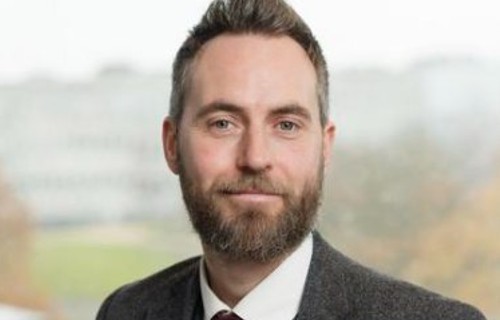 Michael D Higgins has caused an economic storm, or at least a storm among economists, that was still rumbling on a week after the President said the teachers of the discipline were “stuck in an inexorable growth narrative”. The reaction was swift, with reports in this newspaper of economists lashing out at the comments, calling them “lazy”, “outdated” and “uninformed”. Paschal Donohoe weighed in to defend the President, saying it was “brilliant” to see a discussion around economic thought, and that it is “wonderful to have a President who wants to initiate these debates”.
Michael D Higgins has caused an economic storm, or at least a storm among economists, that was still rumbling on a week after the President said the teachers of the discipline were “stuck in an inexorable growth narrative”. The reaction was swift, with reports in this newspaper of economists lashing out at the comments, calling them “lazy”, “outdated” and “uninformed”. Paschal Donohoe weighed in to defend the President, saying it was “brilliant” to see a discussion around economic thought, and that it is “wonderful to have a President who wants to initiate these debates”.
The fact is, Higgins is right. There are ecological limits to economic growth and this reality has not been adequately incorporated into how we teach the social sciences. He is also right that there is a lack of pluralism in how economics and political economy is taught. These were the two core themes of the President’s speech that provoked the backlash.
The reaction was a somewhat understandable response to the fact that Higgins narrowed his criticism to the economics profession in Irish universities. From my perspective, he could have easily extended his critique to how all the social sciences are taught in our universities – including political science.
Most of the criticisms of his speech were not actually directed at what he said, namely: there are ecological limits to growth and we need a paradigm shift away from economic models that give primacy to market exchange and the price mechanism in dealing with this reality. The latter is a theme that the President has been consistently addressing for years.
Central to his speech was the recurrent theme of critiquing neoliberal economics. For him, this is a political and economic philosophy that gives central importance to free markets in allocating resources and promoting growth. For Higgins, tackling the climate emergency requires a completely new socio-economic system, one that moves away from market economics.
It means challenging the traditional market paradigm that treats the environment as a subset of the economy. It means moving way beyond the idea of treating pollution as a market externality that can be addressed through carbon pricing. It means accepting that economic growth simply cannot continue indefinitely. It requires, as he calls it, a new “social-ecological” model that challenges a culture of “obsessive individualism”, “reduces consumption” and “connects with nature”.
If this sounds rather utopian (and anti-capitalist!), that’s because it is. Higgins is a utopian thinker, and we tend not to teach utopianism in our universities. The focus is increasingly on labour market skills.
So when the President calls for more pluralism in the teaching of economics and political economy, he does not mean adding a module on sustainable development or environmental economics. He means teaching radical theories that promote a new form of economics, such as reducing profit and output to achieve social and ecological sustainability.
Importantly, he never mentioned the word ‘degrowth’ in his speech, although clearly there is an element of this social movement in his thinking. Higgins is a politician after all; he understands that the challenge is to generate a new political narrative of growth – one that respects the ecological limits of nature, without giving up the social necessity of improving the living standards of the least well off.
Income Growth
Is there a demand for this type of teaching? My own experience would suggest yes. For example, three weeks ago, at the end of a class I taught to my masters’ students on the politics of growth in advanced capitalist democracies, several of them challenged me on why I focused so much on per capita income growth as a measure of national economic success.
I made the case that income growth is what legitimises democratic capitalism, and that without economic growth, no government can expect to get elected. Hence, from my political economy perspective, the idea that governments would champion an economic model that encourages less growth is really hard to fathom. There is simply no political constituency for it. And if there is, it is tiny in electoral terms.
However, the students made a strong case that without shifting the objective away from economic growth, the planet is basically doomed. They made the case for examining alternative modes of production and for engaging more closely with political-economic theories that fundamentally challenge the workings of market capitalism.
They also challenged my underlying assumption that individuals are greedy and self-interested actors that always seek to maximise their own well being. It’s not that they disagreed with this. Rather, they rightly argued that human beings are so much more than this. Why not assume a politics of cooperation rather than a politics of competition?
Their feedback made me realise that while I incorporate the political economy of climate inequalities into all my modules, and regularly discuss the climate emergency, I never actually question the assumption of linear economic growth. For them, this was really problematic.
It also made me reflect on the research that I get my students to read. Within my specific scholarly community in comparative and international political economy –while there is an important nod to green growth and alternative economic thinking – there is no real engagement with the empirical reality that economic growth has ecological limits.
In my field, for example, 50 years of research on “advanced industrial economies” has never seriously questioned the ecological problems of a western growth model that was built around the internal combustion engine, the petrol-guzzling motor car and the polluting auto-manufacturing industry.
So unless there has been a revolution in the curriculum of economics over the past decade, and post-growth economics is now widely taught in our universities, I suspect most economic science, like most political science, has not systematically engaged with the existential and ecological reality that the President outlined in his speech.
It is also worth mentioning that the international student group, Rethinking Economics, whose aim is to promote diversity and pluralism in the teaching of economics, endorsed the President's speech and retweeted it to their 83,000 followers on Twitter. This global network of students is clearly active in promoting the ideas of ecological economics.
The President’s speech drew heavily upon the work of ecological economists, and in particular, the research of Tim Jackson, a professor of sustainable development at the University of Surrey. He is best known for his book Prosperity Without Growth: Economics for a Finite Planet. Jackson, among other economists, was in the audience for the President’s speech. Higgins was clearly speaking to the room.
The Political Challenge
In order to keep global warming to within 1.5 degrees, the world can only emit another 320 billion tonnes of CO2e. At the present rate at which we are burning carbon, that gives the planet eight years. So the ecological economists are right, the idea that we can tackle the climate emergency without tearing up the mainstream economic rulebook is a fairytale. So is the idea of being ideologically impartial.
The question I would ask Michael D Higgins and ecological economists is how exactly do we implement a post-growth economy politically? Under what conditions can political parties generate a new narrative of growth and prosperity that respects the ecological limits of nature and get elected?
The challenge of climate change is political. The science is crystal clear. The economics is far too reluctant to change. But even if the economic ideas change, it is not clear how democratic governments can bring voters along with them to implement the change. This is a critically important societal challenge that ought to be front and centre in the teaching of political science.
 Aidan Regan is an associate professor of political economy in UCD School of Politics and International Relations at University College Dublin. This article was originally published in the Business Post, 07/05/2023, available at: https://www.businesspost.ie/analysis-opinion/aidan-regan-why-an-economy-of-cooperation-not-growth-can-halt-climate-catastrophe/
Aidan Regan is an associate professor of political economy in UCD School of Politics and International Relations at University College Dublin. This article was originally published in the Business Post, 07/05/2023, available at: https://www.businesspost.ie/analysis-opinion/aidan-regan-why-an-economy-of-cooperation-not-growth-can-halt-climate-catastrophe/